Primary Faculty

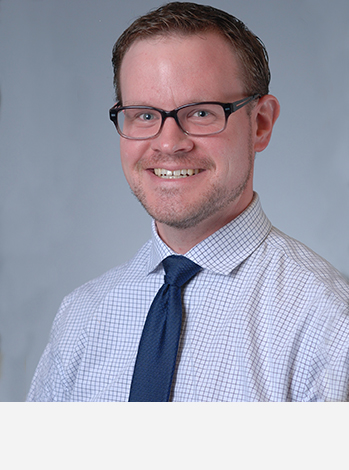
Bio
Brady Atwood is an Associate Professor in the Department of Pharmacology and a faculty member of the Molecular Pharmacology and Therapeutics (MPaT) Graduate Program. He got his bachelor's degree in Neuroscience and a minor in Molecular Biology from Brigham Young University, graduating magna cum laude in 2005. He received his doctorate in Neurobiology and Behavior from the University of Washington in 2010, studying cannabinoid pharmacology in the laboratory of Dr. Ken Mackie. He performed his postdoctoral fellowship at the National Institute on Alcohol Abuse and Alcoholism in the laboratory of Dr. David Lovinger studying opioid-induced synaptic plasticity. He began as an Assistant Professor at the Indiana University School of Medicine in 2016 and was promoted to Associate Professor with tenure in 2022. He relocated his laboratory to the University of Minnesota Medical School in 2024.
Research Summary
The Atwood laboratory is focused on understanding the functions of specific connections, known as synapses, between brain cells and how these functions are impacted by exposure to addictive drugs like opioids, and alcohol. Synapses are the principal sites of information transfer between cells. Synaptic transmission determines animal behavior and is highly changeable. The process of synapses changing is called synaptic plasticity. This synaptic plasticity allows for a person or an animal’s learning and adaptation to their environment. However, many disease states can alter synaptic plasticity, which can negatively influence both learning and behavior. The Atwood laboratory uses a multidisciplinary approach, from molecular analyses to studies of animal behavior, to elucidate the function of specific synapses in brain circuits that influence behaviors that control consumption of addictive drugs. They are most interested in how binge alcohol drinking affects the brain and how prenatal opioid exposure impacts neurobehavioral development and function.
Contact
Address
3-126 Nils Hasselmo Hall312 Church St SE
Minneapolis, MN 55455-0215
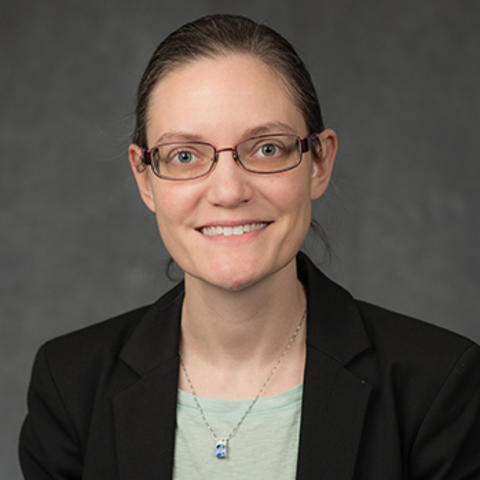
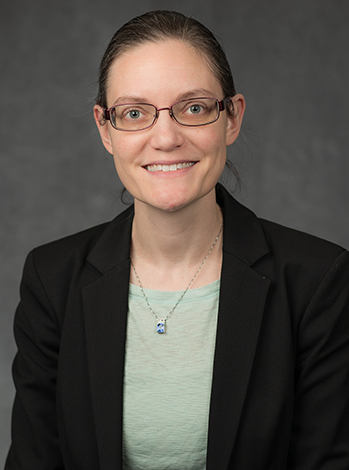
Bio
Carly Baehr is an Assistant Professor in the Department of Pharmacology. She received her B.S. with a double major in Chemistry and Biochemistry and Molecular Biology from Rose-Hulman Institute of Technology (Terre Haute, IN) in 2011. Her graduate work in Molecular Pharmacology and Experimental Therapeutics at the Mayo Graduate School of Biomedical Sciences (Rochester, MN) explored regulation of DNA damage repair in response to antimetabolites in cancer chemotherapy. Her post-doctoral work supported by the PharmacoNeuroImmunology program at UMN focused on vaccines and monoclonal antibodies against opioids in the laboratory of Dr. Marco Pravetoni. Currently, she works with Drs. Pravetoni and Michael Raleigh to advance murine and humanized anti-fentanyl monoclonal antibodies, and related projects to isolate antibodies against other drugs of abuse and toxic compounds.
Research Summary
Vaccines and monoclonal antibodies (mAbs) targeting small molecule drugs of abuse work by sequestering the target compounds in the bloodstream, preventing diffusion across the blood-brain barrier. Such mAbs against fentanyl are able to both prevent and reverse the effects of fentanyl in animal models, and enhance the efficacy of the opioid antagonist naloxone by reducing competition with fentanyl at opioid receptors. Highly specific mAbs can also be utilized for rapid detection of their target molecule in unknown samples. Our research focuses on elucidating the pharmacology of anti-fentanyl mAbs for reversal of fentanyl overdose, and on isolation of novel mAbs against other compounds of clinical interest.
Contact
Address
2-124 Nils Hasselmo Hall312 Church St SE
Minneapolis, MN 55455-0215


Bio
Colin Campbell is an Associate Professor in the Department of Pharmacology. Dr. Campbell emigrated to the US with his parents as a young lad and received his primary and secondary education in Connecticut. He received his B.S. degree in Biology from Fairfield University, and after a brief stint as a research technician at Yale University, matriculated in the Biochemistry PhD program at Boston University. After graduation he pursued postdoctoral training in human molecular genetics with Dr. Raju Kucherlapati, initially at the University of Illinois at Chicago, and subsequently at the Albert Einstein College of Medicine in Bronx, New York.
Research Summary
The Campbell lab is interested in how mammalian cells recognize and respond to xenobiotic-induced DNA damage. In particular, we're interested in DNA damage induced by anti-cancer agents. It is known that cells recognize this damage and respond by activating signal transduction pathways that dictate cellular responses such as: DNA repair, cell cycle arrest, and/or activation of programmed cell death. Mutations in key genes regulating this process can alter this DNA damage response in ways that render cancer cells unresponsive to the cytotoxic effects of anti-cancer drugs, resulting in drug resistance and patient death. On the other hand, many anti-cancer drugs evoke catastrophic levels of cell killing within normal cell populations, including stem cells within the bone marrow, gastrointestinal tract, reproductive tissues, etc. Developing a greater understanding of this highly regulated and complex cellular response has the potential to significantly impact the field of cancer chemotherapy. This insight can be utilized to develop novel therapeutics that target tumor-specific mutations in ways that enhance chemotherapeutic efficacy. The long-term objective of these studies is to gain insight that can be used to improve the safety and efficacy of cancer chemotherapy.
Contact
Address
3-130 Nils Hasselmo Hall312 Church St SE
Minneapolis, MN 55455-0215
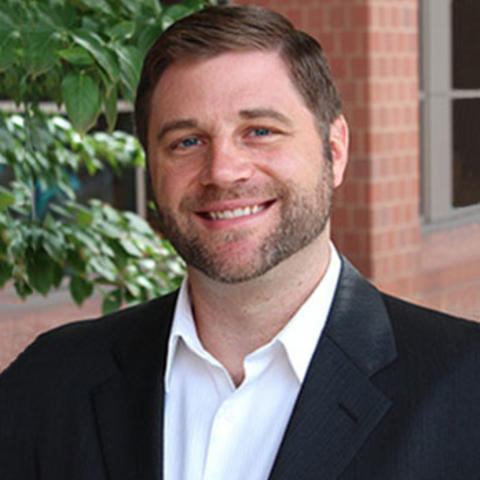
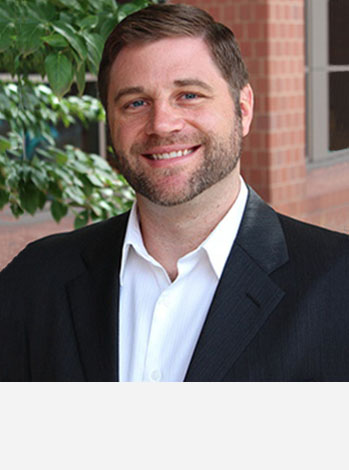
Bio
Dr. Drake is an Associate Professor in the Department of Pharmacology and Urology, a Prostate Cancer Foundation Young Investigator and a Masonic Scholar. He received his B.S. degree from Minnesota State University, Mankato in Biochemistry and Ph.D. degree from the University of Iowa in the Department of Molecular Physiology and Biophysics in the laboratory of Dr. Michael D. Henry. His postdoctoral training was in the lab of Dr. Owen N. Witte at UCLA. Prior to coming to the University of Minnesota in 2018, Dr. Drake held a faculty position at the Rutgers Cancer Institute of New Jersey in the Department of Medicine. Dr. Drake is also Chief Science Officer at Astrin Biosciences focusing on liquid biopsy-derived detection of circulating tumor cells for early detection and precision therapies.
Education
Undergrad: Minnesota State University, Mankato
Grad School: University of Iowa
Awards and Recognitions
- Semmer Fellowship in Prostate Cancer
- Young Investigator Award Spotlight Department of Defense
- Society for Basic Urologic Research (SBUR) Young Investigator Award
- Prostate Cancer Foundation (PCF) Young Investigator Award
- Department of Defense Scientific Highlight Selection
- UCLA MBI Postdoctoral Award for Research Excellence
- PCF-AACR Scholar-in-Training Award
- AACR Scholar-in-Training Award
Research Summary
Research in the Drake Lab focuses on blending basic and translational research approaches to better understand the signaling networks in lethal metastatic castration resistant prostate cancer, and how to more effectively treat patients who are suffering from this disease using rationalized targeted therapies. Previous research from Dr. Drake and others suggest that kinase activation may be a primary mechanism of resistance to current therapies in late stage prostate cancer. Using in vivo primary mouse and human cancer model systems, the Drake Lab investigates what particular kinase signaling pathways are activated that lead to this resistance and how new targeted therapies, such as kinase inhibitors, may perturb these pathways for future clinical utility.In addition, Dr. Drake's lab will also employ phosphoproteomics enrichment technologies coupled to quantitative targeted mass spectrometry to identify the activated kinases and pathways in pre-clinical and clinical tumors for development of predictive biomarkers. The results of this research aim to evaluate single liquid or tissue biopsies from metastatic prostate cancer patients for activated kinase signatures that will lead to targeted therapies in real time.
Publications
- VanDeusen HR, Ramroop JR, Morel KL, Bae SY, Sheahan AV, Sychev Z, Lau NA, Cheng LC, Tan VM, Li Z, Petersen A, Lee JK, Park JW, Yang R, Hwang JH, Coleman I, Witte ON, Morrissey C, Corey E, Nelson PS, Ellis L, Drake JM. Targeting RET Kinase in Neuroendocrine Prostate Cancer. Mol Cancer Res. 2020 Aug;18(8):1176-1188. doi: 10.1158/1541-7786.MCR-19-1245. Epub 2020 May 27. PubMed PMID: 32461304; PubMed Central PMCID: PMC7415621.
- Drake JM, Paull EO, Graham NA, Lee JK, Smith BA, Titz B, Stoyanova T, Faltermeier CM, Uzunangelov V, Carlin DE, Fleming DT, Wong CK, Newton Y, Sudha S, Vashisht AA, Huang J, Wohlschlegel JA, Graeber TG, Witte ON, Stuart JM. Phosphoproteome Integration Reveals Patient-Specific Networks in Prostate Cancer. Cell. 2016 Aug 11;166(4):1041-1054. doi: 10.1016/j.cell.2016.07.007. Epub 2016 Aug 4. PubMed PMID: 27499020; PubMed Central PMCID: PMC4985183.
- White RE 3rd, Bannister M, Day A, Bergom HE, Tan VM, Hwang J, Dang Nguyen H, Drake JM. Saracatinib synergizes with enzalutamide to downregulate AR activity in CRPC. Front Oncol. 2023;13:1210487. doi: 10.3389/fonc.2023.1210487. eCollection 2023. PubMed PMID: 37456235; PubMed Central PMCID: PMC10348659.
- For more, see: https://www.ncbi.nlm.nih.gov/myncbi/1-3MethxfChkb/bibliography/public/
Contact
Address
3-134 Nils Hasselmo Hall312 Church St SE
Minneapolis, MN 55455-0215
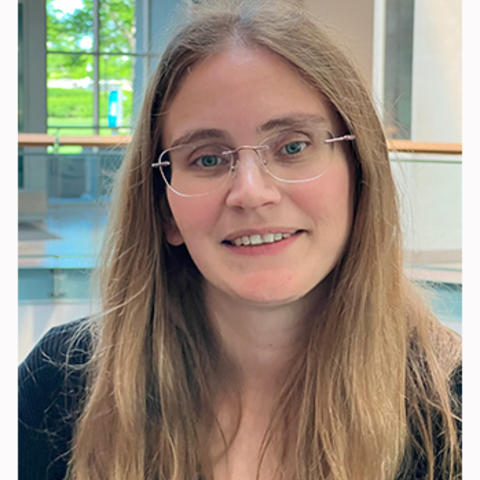
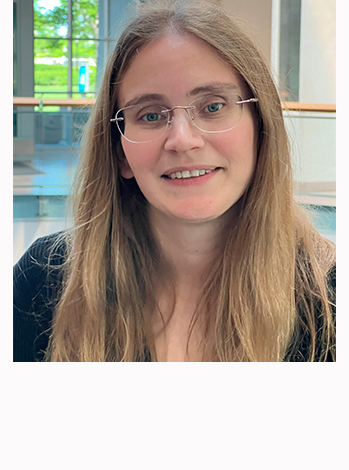
Bio
Meghan Driscoll is an Assistant Professor in the Department of Pharmacology. She is a graduate faculty member of the Molecular Pharmacology and Therapeutics (MPaT) Graduate Program, as well as the Bioinformatics and Computational Biology Graduate Program. Dr. Driscoll attended Harvey Mudd College, where she received a B.S. in Physics. She then earned a Ph.D. in Physics from the University of Maryland, working under the mentorship of Dr. Wolfgang Losert. Moving to the University of Texas Southwestern Medical Center, she joined the lab of Dr. Gaudenz Danuser as a Postdoctoral Fellow and later Instructor. Dr. Driscoll joined the Department of Pharmacology in 2022.
Research Summary
Cells have convoluted and dynamic morphologies. Their morphology is a critical element of the vast signaling network regulating cellular functioning. Focusing on cancer and immune cells, which are often highly dynamic, the Driscoll lab investigates how the interplay between cell morphology, dynamics, and signaling governs cell function. To visualize quick subcellular dynamics, we use state-of-the-art microscopy, especially high-resolution light-sheet microscopy. The detailed 3D movies produced by these microscopes necessitate dedicated computational pipelines, and so we develop algorithms rooted in computer graphics, computer vision and machine learning to facilitate biological discovery.
Contact
Address
3-132 Nils Hasselmo Hall312 Church St SE
Minneapolis, MN 55455-0215
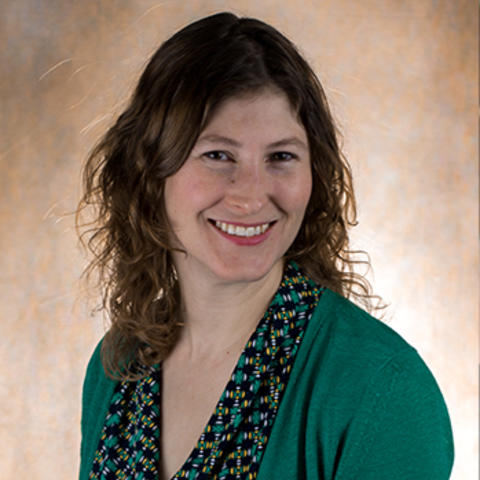

Bio
Dr. Freedman is an Associate Professor in the Department of Pharmacology. She is also affiliated with the Center for Immunology, Masonic Cancer Center, and Center for Autoimmune Diseases Research at UMN. She completed her AB with honors in Biochemistry at Bowdoin College in Brunswick, Maine, and her PhD in Molecular and Cell Biology at the University of California, Berkeley, studying the structural biology of Ras-activating proteins. She completed her postdoctoral fellowship at the University of California, San Francisco, where she discovered a mechanism by which the Src-family kinase LynA tunes macrophage sensitivity to pro-inflammatory activation, a process with implications for myeloid-cell hypersensitization in autoimmune disease.
Research Summary
The Freedman lab studies mechanisms by which myeloid cells and lymphocytes integrate positive- and negative-regulatory signals to achieve tissue-specific functions and drive pathologies from autoimmune disease (e.g., lupus/SLE, inflammatory arthritis/RA/JIA) to breast cancer. Immune-cell responses are triggered by complex networks of signaling pathways that intersect and feed back for higher-order regulation. The effectiveness of this regulatory control is the key difference between an appropriate antimicrobial response and chronic inflammation or immunosuppression. The lab investigates how cells discriminate between different types of extracellular molecules, how cells achieve tissue-specific functions, and how immune responses become dysregulated in disease. Mechanisms regulated by tyrosine kinases (e.g., Src homologs LynA and LynB) and phosphatases (e.g., PTPN22, SHP-1) in myeloid cells such as macrophages, dendritic cells, and mast cells, are areas of particular interest to the lab.
Contact
Address
3-190 Wallin Medical Biosciences Building2101 6th Street SE
Minneapolis, MN 55455-0215
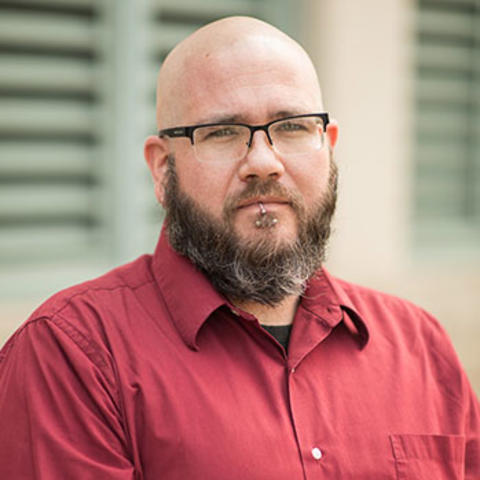
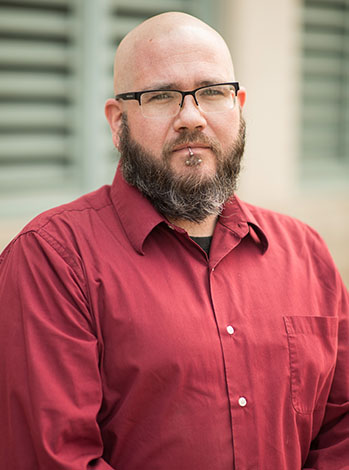
Bio
Steven Graves is an Assistant Professor in the Department of Pharmacology and a member of the Medical Discovery Team on Addiction. Dr. Graves received his B.Sc. degree from the University of Michigan in Biopsychology & Cognitive Sciences and Ph.D. degree from Rush University Medical Center in the Department of Pharmacology. His postdoctoral training was in the laboratory of Dr. D. James Surmeier at Northwestern University in the Department of Physiology. Prior to joining the University of Minnesota in 2018, Dr. Graves was a research assistant professor at Northwestern University in the Department of Physiology.
Research Summary
Research in the Graves lab is focused on investigating mechanisms of neurodegeneration with an emphasis on examining the effects of drugs of abuse, such as methamphetamine or alcohol, on monoaminergic neurons. Neurotoxic effects of methamphetamine or alcohol may increase the risk for developing neurodegenerative diseases such as Parkinson’s and/or Alzheimer’s disease; by identifying and understanding mechanisms by which these drugs of abuse cause degeneration or increase vulnerability of neurons we hope to identify neuroprotective strategies to mitigate the deleterious outcomes. In addition to our neurodegenerative studies, we are investigating the neurobiology of substance use disorders to better understand circuitry and maladaptive plasticity that contributes to drug-seeking behaviors. Projects in my lab use state-of-the-art techniques including patch clamp electrophysiology, two-photon laser scanning microscopy, genetically encoded biosensors, optogenetics, chemogenetics, stereological analyses, and behavioral pharmacology.
Contact
Address
3-106 Nils Hasselmo Hall312 Church St SE
Minneapolis, MN 55455-0215

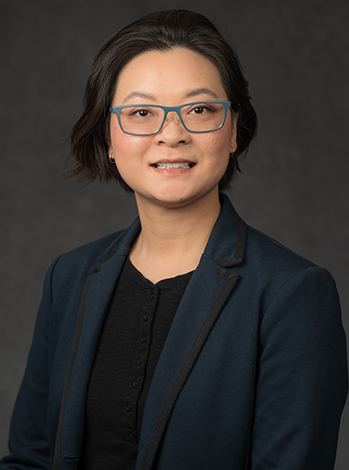
Bio
Anna Lee is an Associate Professor in the Department of Pharmacology. Dr. Lee received her B.S. degree in Pharmacology from the University of Alberta in Edmonton, Canada, and her Ph.D. in Pharmacology from the University of Toronto. She then moved to the US for a post-doctoral fellowship with Dr. Robert Messing at UCSF. Dr. Lee was a Research Assistant Professor at the University of Texas, Austin, prior to moving to her current position in the Department of Pharmacology at the University of Minnesota.
Research Summary
The goal of my research is to elucidate the molecular mechanisms in alcohol use disorder. Alcohol use disorder is also frequently associated with other conditions such as nicotine dependence, chronic pain and dementia. The goal of our work is to understand the mechanisms that contribute to alcohol use disorder and its comorbidities. We are particularly interested in how cholinergic signaling and nicotinic acetylcholine receptors (nAChRs) contribute to alcohol use disorder and its comorbidities with nicotine dependence. The nAChRs are widely expressed ligand-gated ion channels that are primarily found on presynaptic terminals and on neuronal cell bodies, and thus are poised to modulate neurotransmission and regulate neural circuits. We are interested in how cholinergic signaling in the midbrain, and different nAChR subtypes, contribute to the effects of alcohol and the development of alcohol use disorder. We use a wide range of molecular and behavioral tools including transgenic mouse models, viral genetic manipulations, pharmacological tools and behavioral assays in pre-clinical mouse models.
Contact
Address
3-136 Nils Hasselmo Hall312 Church Street SE
Minneapolis, MN 55455-0215
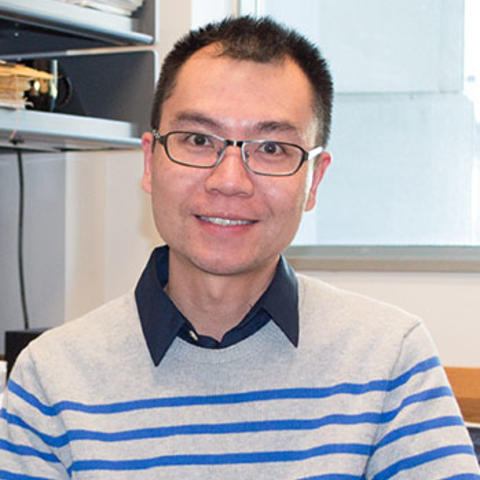
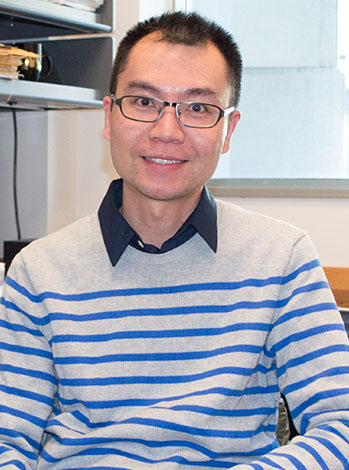
Bio
Dr. Leung is an Assistant Professor of Pharmacology and a member of the Masonic Cancer Center's Cellular Mechanisms Program. He received a B.S. degree in Biochemistry at University of Maryland at College Park. Dr. Leung then received his Ph.D. from the Johns Hopkins University School of Medicine working with Randall Reed, Ph.D. in the Department of Molecular Biology and Genetics. He then moved to Harvard Medical School for his post-doctoral training with Joan Brugge, Ph.D. before joining the Department of Pharmacology at the University of Minnesota.
Research Summary
Research in the Leung Lab focuses on understanding the cellular and molecular control of cancer cell quiescence in the context of premalignant development, cancer treatments, and relapses. Our overarching goal is to identify early markers for cancer development and develop targeted approaches for treating residual disease and reducing cancer relapses. The laboratory focuses on breast cancer, but also studies other epithelial cancer types including lung and ovarian. Sustained quiescence despite genetic alterations supporting tumor growth is a common feature of premalignant cells and dormant cancer cells during cancer progression and under cancer treatments. The maintenance and outgrowth of such quiescent mutant cells underlie the checkpoints that control the latency of primary and recurrent cancer development. The Leung Lab develops 3D organotypic and animal models to recapitulate the genetic, cellular, and stromal environments of premalignant development and residual diseases. Utilizing these models as discovery platforms with diverse cellular and molecular techniques including genetic engineering, live-cell imaging, proteomics and high throughput screening, current studies in the laboratory focus on elucidating the roles of kinase signaling and epigenetic regulators in quiescent cancer cell survival and cell cycle control, and exploiting these controls to develop prognostic markers for residual diseases and therapeutic strategies for cancer relapses.
Contact
Address
3-120 Nils Hasselmo Hall312 Church Street SE
Minneapolis, MN 55455-0215


Bio
Dr. Levinson is an Associate Professor in the Department of Pharmacology and a member of the Masonic Cancer Center's Genetic Mechanisms Program. Dr. Levinson received his Bachelors and Masters degrees in Biochemistry from Cambridge University, and his PhD degree from the University of California, Berkeley, where he studied the structural basis of protein kinase function. After postdoctoral training at Stanford University in the Department of Chemistry, he joined the University of Minnesota as an Assistant Professor in 2014.
Research Summary
The Levinson Lab studies the structural and dynamic basis for protein kinase function. We use a diversified range of methods spanning crystallography, magnetic resonance, and ultrafast spectroscopy to dissect the role of kinase conformational dynamics in catalytic function and drug targeting. Our work has revealed the existence of dynamic water networks in kinase active sites that are important for catalytic function, and shown that large-scale conformational changes play a critical role in selective recognition of kinase inhibitor drugs. We have also shown that kinase engagement with different regulatory partners modulates these dynamic effects to alter inhibitor recognition. We aim to leverage these approaches and insights for the design of next-generation cancer therapeutics that modulate kinase allosteric functions by tuning conformational dynamics.
Contact
Address
3-121 Nils Hasselmo Hall312 Church Street SE
Minneapolis, MN 55455-0215
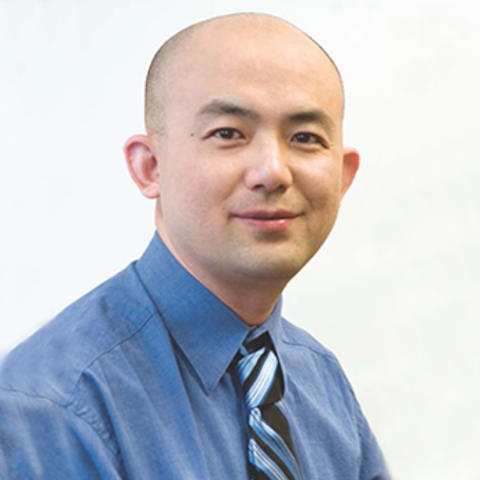
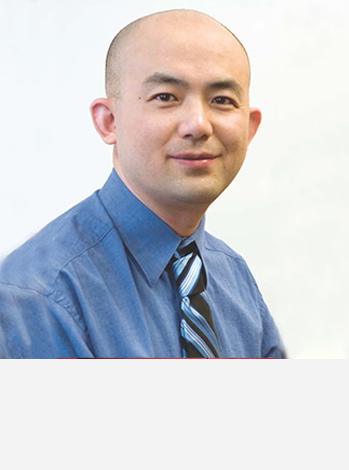
Bio
Fang Li is an Edmund Wallace Tulloch and Anna Marie Tulloch Endowed Chair, a Full Professor in the Department of Pharmacology and the Director of the Center for Emerging Viruses.
Professor Li is a leading researcher in the coronavirus entry field. He has conducted pioneering work on the cell entry mechanisms of SARS-CoV-2 (the virus causing COVID-19), SARS-CoV-1 (responsible for the 2002-2003 SARS epidemic), and other coronaviruses. His group has determined many structures of coronavirus invasion proteins and uncovered many molecular mechanisms by which coronaviruses infect host cells. His research has laid the foundation for the structural biology of coronavirus entry and has been a major driving force behind our current understanding of receptor recognition and cell entry of coronaviruses.
Professor Li's research on COVID-19 has uncovered critical molecular mechanisms by which SARS-CoV-2 infects human cells while evading immunity and has provided insights into the evolutionary origins of the virus. His work has laid the molecular foundation that has guided the global effort against the pandemic.
Currently, Professor Li and his team are developing novel therapeutics against emerging viruses, including SARS-CoV-2 and Ebola, as well as other human diseases such as cancer. His long-term goal is to apply innovative structural biology approaches to address important global health challenges.
Research Summary
In Dr. Li's Laboratory of Structural Biology of Disease, we study the structural and molecular mechanisms of human diseases of global health concern, including viral infections and cancer.
Our primary research focuses on the invasion mechanisms of viruses. We investigate the structures and functions of virus surface proteins that mediate receptor recognition and cell entry of viruses.
Another area of our research explores the structural and molecular mechanisms of cancer and other human diseases. Specifically, we examine the structures and functions of human cell surface proteins that are critical for disease mechanisms.
Building on these structural and functional studies, we develop novel preventive and therapeutic strategies against human diseases.
Our research tools include X-ray crystallography, cryo-electron microscopy, protein biochemistry, molecular biology, vaccine design, and drug discovery.
Contact
Address
6-120 Jackson Hall312 Church St SE
Minneapolis, MN 55455-0215
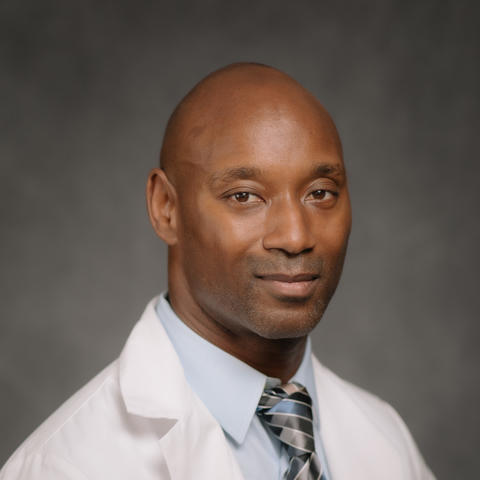
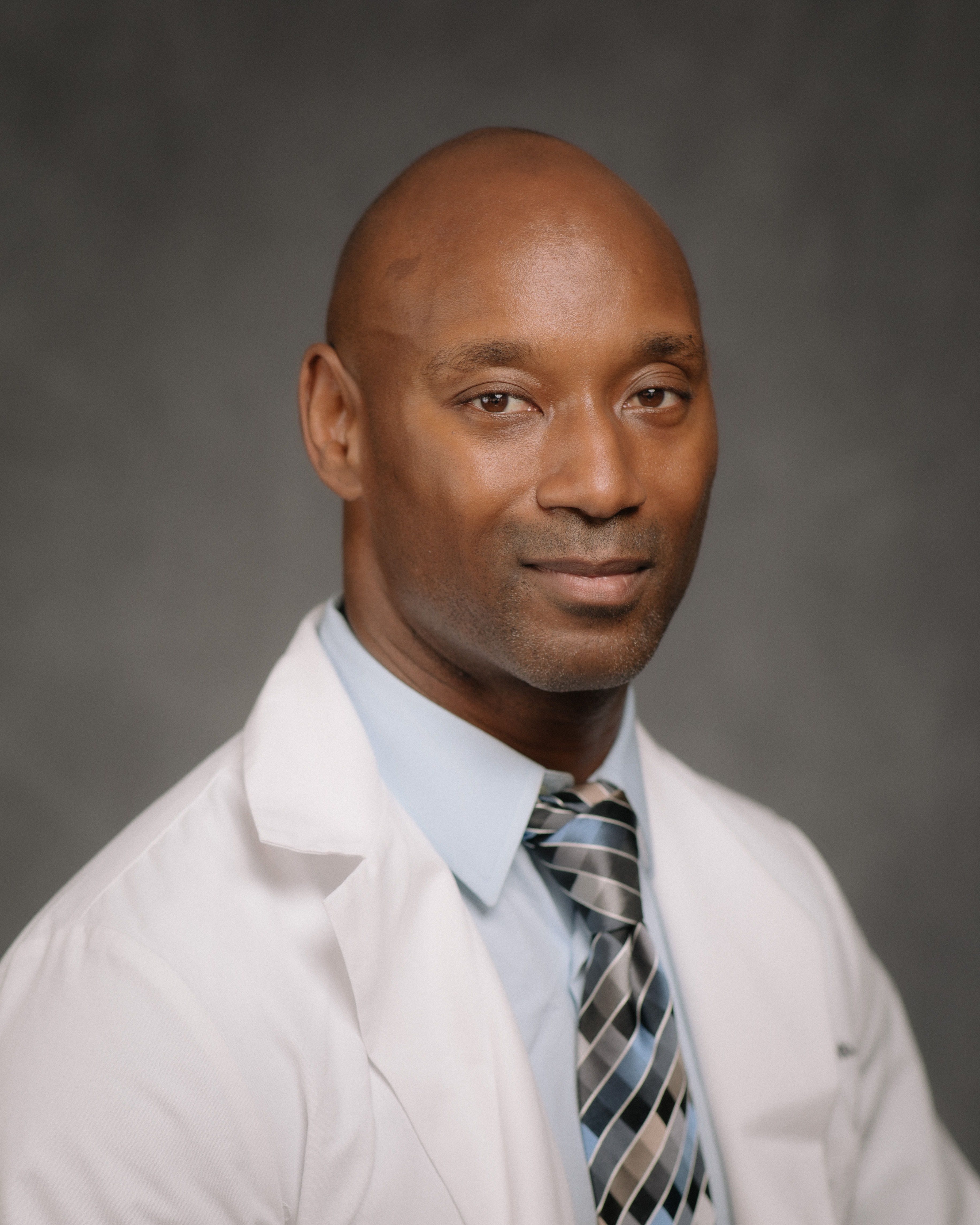
Bio
Michael Lipscomb is an Associate Professor in the Department of Pharmacology and the Associate Dean for Graduate Education in the Medical School. He received his B.S. degree from University of California Los Angeles with a degree in Microbiology, Immunology and Molecular Genetics prior to receiving a Ph.D. degree in Immunology from the University of Pittsburgh. His postdoctoral training was at University of Pennsylvania and Children's Hospital of Philadelphia. Dr. Lipscomb joined the Department of Pharmacology in 2022, previously a faculty member at Howard University, and is affiliated with the Center for Immunology.
Research Summary
Research in the Lipscomb Lab employs both basic and translational approaches to delineate the immunoregulatory networks that govern antigen presenting myeloid cell development and function. Investigations focus on defining the roles of novel genes that regulate dendritic cells (DC), monocyte and macrophage intracellular signaling events that include modulation of Ca2+ and cyclic nucleotides levels, activation/inactivation of protein kinases and post-translational modifications that alter downstream functional responses. In a related series of studies, the lab investigates how antigen presenting myeloid cells contribute to autoimmune disorders. Inflammatory regulating genes present in the MHC class III locus within the myeloid groups are studied to determine their collective contribution to initiating, sustaining and directing autoimmune pathologies. Lastly, the Lipscomb laboratory employs biomaterial compounds seeded with immune cells to generate new organoid structures as an innovative means of tissue restoration for alleviating immunodeficiency disorders.
Contact
Address
3-108 Nils Hasselmo Hall312 Church St SE
Minneapolis, MN 55455-0215
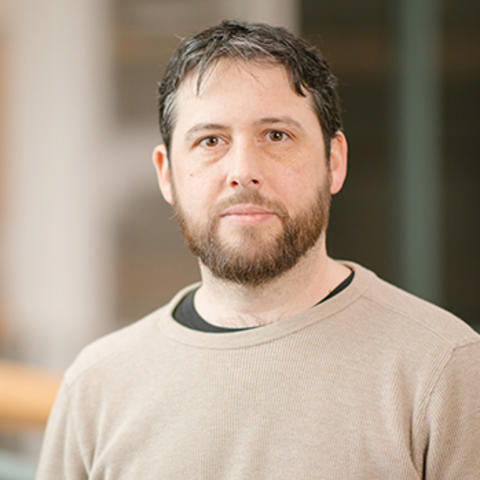
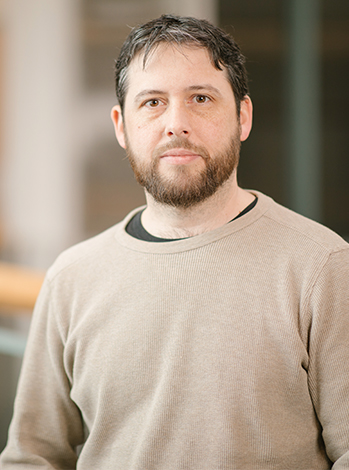
Bio
Ezequiel Marron is an Assistant Professor (Academic Track) in the Department of Pharmacology and the Manager of the Viral Vector and Cloning Core and Viral Innovation Core at the University of Minnesota. He received a B.S. in Biology and a B.S. in Biochemistry as well as a M.S. degree in Neuroscience, a M.S.Ed in Education from the University of Salamanca Dr. Marron received his PhD in Biology/Neuroscience working in the laboratory of Dr. Raquel E. Rodriguez. After completing postdoctoral training in the laboratory of Dr. David Armstrong at NIEHS–NIH, Dr. Marron joined Dr. Kevin Wickman's laboratory at the University of Minnesota where he worked as a Senior Scientist until getting promoted in 2019.
Research Summary
I am a neuroscientist specialized in molecular/cell biology, electrophysiology and pharmacology working in the field of drug addiction and mood disorders. I study the neuroadaptations that occur in particular areas of the brain (mesocorticolimbic system) after drug exposure, and the behavioral expression of such adaptations. I specifically focus in the plasticity of the inhibitory signaling regulated by G protein coupled receptors (GPCRs) and G protein activated inwardly rectifying potassium (GIRK) channels. I am also interested in exploiting the pharmacological regulation of GIRK channels as they could be promising targets for the treatment of addiction as well as other diseases where GIRK channels seem to be involved, such as autism/ADHD, Down syndrome, Schizophrenia, Parkinson, and Alzheimer disease.
As Manager of the Viral Vector and Cloning Core and the Viral Innovation Core, I have developed strong connections with many investigators at the University of Minnesota (and outside), including those in the field of drug addiction. I provide guidance to VVCC/VIC customers with viral vector design, production and use, as well as support related to their manuscript and grant applications.
Contact
Address
2-104 Nils Hasselmo Hall312 Church St SE
Minneapolis, MN 55455-0251


Bio
Dr. Nguyen is an Assistant Professor in the Department of Pharmacology and an EvansMDS Young Investigator, determining mechanisms and therapeutic strategies for Myelodysplastic syndrome patients harboring RNA splicing gene mutations. He is also a part of a multidisciplinary team in the functional genomics of solid tumors, launched by the Medical School and the Masonic Cancer Center to develop new technologies and models for understanding cancer heterogeneity. He received his B.A. degree from The College of Wooster, Ohio and Ph.D. degree from University of Minnesota in the laboratory of Dr. Anja-Katrin Bielinsky. He completed his postdoctoral research training in Dr. Lee Zou's laboratory at Harvard Medical School and Massachusetts General Hospital Cancer Center.
Research Summary
In response to DNA damage from environmental and endogenous sources, cells activate an elaborate signaling network called DNA damage response (DDR). This response functions to preserve genomic integrity, which is critical for normal development and cancer prevention. The ATR kinase is a master regulator of a broad spectrum of DNA damage and replication problems.Sensors of DNA Damage, Replication and Transcription Problems: Our recent studies revealed that ATR is not only important for sensing DNA damage and replication stress, but also to problems associated with transcription. R-loop, a transcription intermediate resulting from the formation of stable RNA:DNA hybrids and a displaced single-stranded DNA (ssDNA), is a major source of genomic instability. We found that ATR is activated by R-loops and plays a critical role in suppressing R-loop-induced genomic instability, thus uncovering a new function of ATR in maintaining genome integrity. The Nguyen laboratory will continue to dissect how ATR regulates R-loop resolution in cancers. Cancer Genomics and Targeted Therapy: we found that the splicing factor mutations associated with myelodysplastic syndromes (MDS) and acute myeloid leukemia (AML) induce R-loops and trigger an ATR response. Cells that express these splicing factor mutants are sensitive to ATR inhibitors, providing a new strategy to target R-loop response for the treatment of MDS and potentially other malignancies associated with RNA splicing mutations. The Nguyen laboratory will determine additional R-loop regulators in different cancer contexts to develop new therapeutic strategies in the future. The Nguyen laboratory is currently developing small molecule probes, biochemical, cell biological and genetic approaches to investigate the underlying mechanisms of sensing and resolving R-loops in different cancers. Results obtained from these researches will provide molecular insight for the development of new targeted cancer therapeutic approaches. Interested applicants should have a PhD and/or MD degree with a strong background in either biochemistry, cell biology, functional genomics, or pharmacology. The laboratory accepts Master and PhD students through Department of Pharmacology program.
Contact
Address
3-122 Nils Hasselmo Hall312 Church St SE
Minneapolis, MN 55455-0357

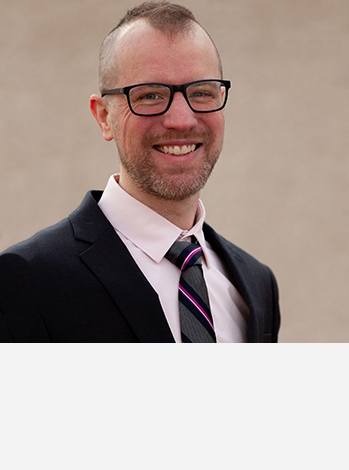
Bio
Michael Raleigh is an Assistant Professor in the Department of Pharmacology. He received his BS degree with distinction from the University of Minnesota in 2006. He worked at a small biotech company in Chaska MN before pursuing his PhD. His professional training began in graduate school at the University of Minnesota in the laboratory of Dr. Paul Pentel studying the efficacy of heroin and oxycodone vaccines to block opioid-induced effects. During this time, he collaborated with Dr. Benito Anton (National Institute of Psychiatry, Mexico), studying the efficacy of their heroin vaccine. Due to the rise of the opioid epidemic and the potential application of these vaccines as treatments for opioid addiction, he continued his postdoctoral work at Hennepin Healthcare Research Institute studying the behavioral effects of these vaccines. He currently works alongside Dr. Marco Pravetoni at UMN to lead IND-enabling studies for use of opioid vaccines in clinical studies. His independent research interest focuses on countermeasures to reduce opioid toxicity and overdose.
Research Summary
Opioid use has increased markedly over the years, leading to an opioid epidemic in the US. Furthermore, because fentanyl and fentanyl analogs are easy to manufacture and are extremely potent, they are increasingly found in adulterated counterfeit medications and illicit drugs, leading to an increase in opioid toxicity and overdose deaths in the US. Dr. Raleigh's research interest is in studying therapies to treat opioid use disorders and toxicity related to their use. These therapies include vaccines, monoclonal antibodies, and small molecule interventions. Combining these various interventions, along with currently approved therapies, could improve outcomes for patients seeking treatment for an opioid use disorder or help prevent or reverse opioid-induced toxicity and overdose.
Contact
Address
3-121 Nils Hasselmo Hall312 Church St SE
Minneapolis, MN 55455-0215

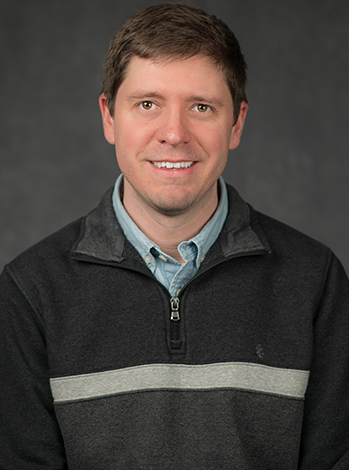
Bio
Michael Sheedlo is an Assistant Professor in the Department of Pharmacology. He attended Michigan State University where he received a B.S. in Biochemistry and Molecular Biology, awarded by Lyman Briggs College. He then transitioned to Purdue University where he earned his PhD from the Department of Chemistry, working in the laboratory of Dr. Chitta Das. After completing his PhD, he obtained a postdoctoral fellowship at Vanderbilt University Medical Center, working under the mentorship of Dr. Borden Lacy. Dr. Sheedlo joined the Department of Pharmacology as an Assistant Professor in 2021.
Research Summary
Research in the Sheedlo lab is focused on defining the mechanisms that govern interactions at the host-pathogen interface. Specifically, we are interested in using cryogenic electron microscopy to generate a framework for understanding how toxins, virulence factors, and delivery systems work. We are currently interested in two such systems from Gram-positive pathogen, Clostridioides difficile. The first is a toxin known as the Clostridioides difficile transferase (CDT) or binary toxin. Although CDT is not needed to evoke the pathology associated with disease, it has been linked to strains that produce severe symptoms and present a higher incidence of infection recurrence. The second system is a putative type four secretion system found within the C. difficile genome. At present, little is known about how these type four secretion systems work or the role that they play during infection. Ultimately, our aim is to understand how both CDT and the type four secretion system contribute to the pathology induced upon C. difficile infection.
Contact
Address
3-128 Nils Hasselmo Hall312 Church St SE
Minneapolis, MN 55455-0251


Bio
Lauren Slosky is an Assistant Professor in the Department of Pharmacology and a member of the Medical Discovery Team on Addiction, a multidisciplinary initiative within the University of Minnesota's Medical School to advance research and treatment in the field of drug addiction. Dr. Slosky's research is focused on understanding how neuropeptide G protein-coupled receptors regulate reward, pain, and motivated behavior – and how these receptors can be targeted for therapeutic benefit. She is currently working to identify novel strategies for the treatment of stimulant and opioid addictions, with a focus on the development of allosteric and functionally selective small molecules. Dr. Slosky was awarded a B.S. with honors in Molecular and Cellular Biology and Psychology from The University of Arizona in 2011. She received a Ph.D. in Medical Pharmacology from The University of Arizona in 2015, under the mentorship of Dr. Todd W. Vanderah. Dr. Slosky completed a postdoctoral fellowship in the laboratory of Dr. Marc G. Caron at Duke University and joined the Department of Pharmacology as an Assistant Professor in 2021.
Research Summary
Substance use disorders are complex neurobehavioral pathologies for which there are a lack of effective therapeutics. The long-term goals of our research group are to expand our understanding of the biological basis of stimulant and opioid addictions and to develop mechanism-based pharmacotherapies for their treatment. In pursuit of these goals, we are working at the interface of receptor biology, behavioral pharmacology, and systems neuroscience.
Contact
Address
3-104 Nils Hasselmo Hall312 Church St. SE
Minneapolis, MN 55455-0251


Bio
Sade Spencer is an Assistant Professor in the Department of Pharmacology. Dr. Spencer received her B.S. degree from the University of Alabama, Tuscaloosa in Biology in 2006. She received her Ph.D. degree in the Neuroscience Graduate Program from the University of Texas Southwestern Medical Center in Dallas in the laboratory of Dr. Colleen A. McClung. Her postdoctoral training was in the laboratory of Dr. Peter W. Kalivas at the Medical University of South Carolina. Dr. Spencer was recruited to the University of Minnesota as part of the Medical Discovery Team on Addiction.
Research Summary
Research in the Spencer Lab focuses on understanding the neurobiological mechanisms underlying reward and related to the development of substance use disorders. Because substance use disorders are highly comorbid with other neuropsychiatric conditions like anxiety and depression, the Spencer lab also examines the overlapping and distinct substrates of these diseases. We combine behavioral analysis in preclinical rodent models with molecular, pharmacological, and genetic tools. Current projects center on the effects of the psychostimulant cocaine and synthetic and phytocannabinoids. It is our hope that a better understanding of the trajectory of the neuroplasticity, physiology, and neurochemistry that underlie these behaviors will help guide the rational design or discovery of new, more effective treatments.
Contact
Address
3-212 Lions Research Building/McGuire Translational Research Facility2001 6th St SE
Minneapolis, MN 55455


Bio
Stan Thayer is a Full Professor in the Department of Pharmacology. He received BS degrees in Biology and Chemistry and a PhD in Pharmacology from the University of California at Irvine. After completing postdoctoral training at the University of Chicago in 1989, Dr. Thayer joined the faculty at the University of Minnesota.
Research Summary
Dr. Thayer's laboratory studies neurodegenerative processes. His group uses electrophysiological and optical techniques to measure ion currents, to image synaptic proteins and to record changes in intracellular calcium within single neurons. Current research efforts focus on three principal areas. 1.Synapse loss occurs early in neurodegenerative disease and correlates with cognitive decline in patients with HIV-associated neurocognitive disorder and Alzheimer's disease. Recent studies indicate that loss of synapses is not a symptom of the cell's demise but instead, is a coping mechanism to reduce excess excitotoxic input. Current studies evaluate pharmacological strategies to prevent loss or induce recovery of synapses during neurotoxic processes. 2.Calcium is an essential second messenger involved in neurotransmitter release, gene regulation, and synaptic plasticity. Inappropriate elevation of the intracellular calcium concentration contributes to the neurodegeneration associated with AIDS, ischemia, epilepsy and head trauma. Thus, neurons have developed a complex system to maintain calcium homeostasis. Current studies focus on the modulation of processes that remove calcium from the cytoplasm by drugs and second messengers. 3.Cannabinoids, analogs of the psychoactive ingredient in marijuana, act on receptors that are part of an endogenous signaling system. Endocannabinoid signaling serves as an on-demand neuroprotective mechanism. Currents studies examine the role of the endocannabinoid system in regulating synaptic transmission and neurotoxicity.Drugs to slow the progression of neurodegenerative disease are lacking. Agents that modulate calcium signals, possibly via the endocannabinoid system, may protect synapses and cells from neurotoxic insult.
Contact
Address
3-116 Nils Hasselmo Hall312 Church St SE
Minneapolis, MN 55455
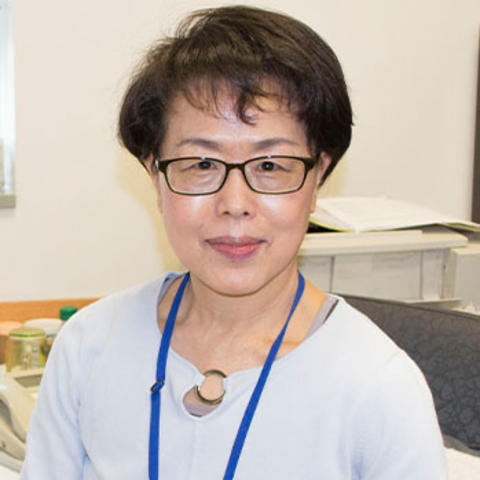
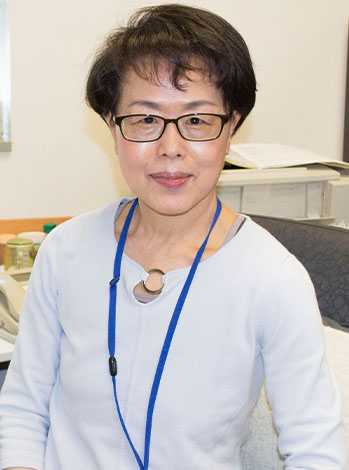
Bio
Dr. Wei is a Distinguished McKnight University Professor, and a Full Professor in the Department of Pharmacology. She received B.S. (Botany) from National Taiwan University, M.S. (Microbiology & Immunology) from the University of Michigan, Ph.D. (Microbiology) from Texas Tech Health Sciences Center and post-doctoral training (Microbiology/Medicine) from Columbia University College of Physicians & Surgeons. Dr. Wei joined the Dept. Pharmacology, University of Minnesota, as an Assistant Professor in 1993, was promoted to tenured Associate Professor in 1999, and Full Professor in 2003. She was named Distinguished McKnight University Professor in 2009 till present. Since 1993, Dr. Wei has been continuously supported by multiple research projects by the NIH till today.
Research Summary
Dr. Wei's lab is interested in regulatory pathways and underlying mechanisms in diseases related to motor function, neuro-endocrine regulation, and immunity. Key targets of investigation are: a) 3D-organ cultures of neural muscular junction (NMJ) and thyroid gland, b) hypothalamus-pituitary regulation/signaling in aging/stress, c) regulation of exosome secretion by vitamin A signaling, and d) hormonal regulation of chromatin remodeling (epigenetic regulation). Major experimental systems/methods include genetic (CRISPR-edited and gene knockout) mouse and culture models, primary cultures, in vitro 3D organ cultures, and d) molecular, biochemical and biophysical methods for drug screening. The ultimate goal is to develop new therapeutic and diagnostic tools/reagents.
Contact
Address
3-124 Nils Hasselmo Hall312 Church St SE
Minneapolis, MN 55455
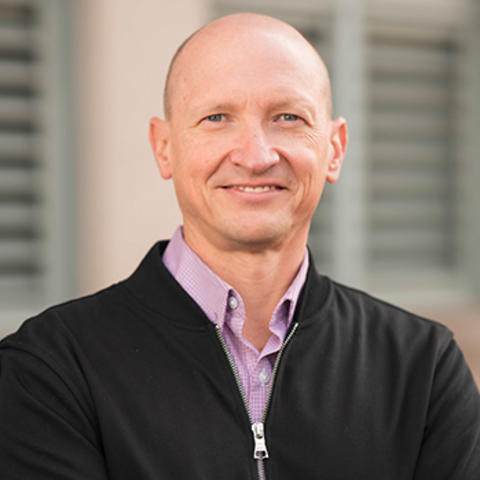
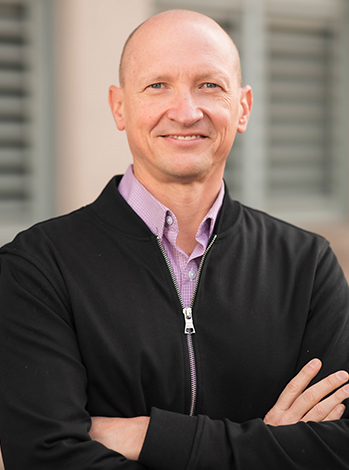
Bio
Dr. Wickman is a Frederick and Alice Stark Endowed Chair, a Full Professor and Head of the Department of Pharmacology. He received his BA in Chemistry (summa cum laude) from Saint Olaf College in Northfield, MN. Subsequently, he earned his PhD in Molecular Neuroscience (advisor: Dr. David Clapham) from the Mayo Foundation for Biomedical Research in Rochester, MN. Following postdoctoral training at Mayo Clinic Scottsdale (advisor: Dr. Sandra Gendler) and Children's Hospital/Harvard Medical School in Boston, MA (advisor: Dr. David Clapham), he accepted a tenure-track faculty position (Assistant Professor) in Pharmacology at the University of Minnesota in 1999. He was promoted to Associate Professor in 2005, and Professor in 2011. He currently holds the titles of Distinguished University Teaching Professor and Distinguished McKnight University Professor.
Research Summary
Research in the Wickman lab centers on mechanisms controlling the excitability of cells in the heart and brain. Dysregulation of cell excitability contributes to many debilitating and/or life-threatening medical conditions, including cardiac arrhythmias, epilepsy, anxiety, depression, schizophrenia, Down Syndrome, addiction, and pain. The Wickman lab seeks to obtain detailed understanding of molecular mechanisms that regulate cell excitability, so that safer and more effective strategies to treat these medical problems can be envisioned and developed. Investigators in the Wickman lab are currently using approaches in electrophysiology, neuromodulation, genetic manipulation, intracranial pharmacology, cardiac physiology, and behavioral assessments relevant to addiction, anxiety, learning, and pain to understand the physiological and pathophysiological relevance of inhibitory signaling pathways.